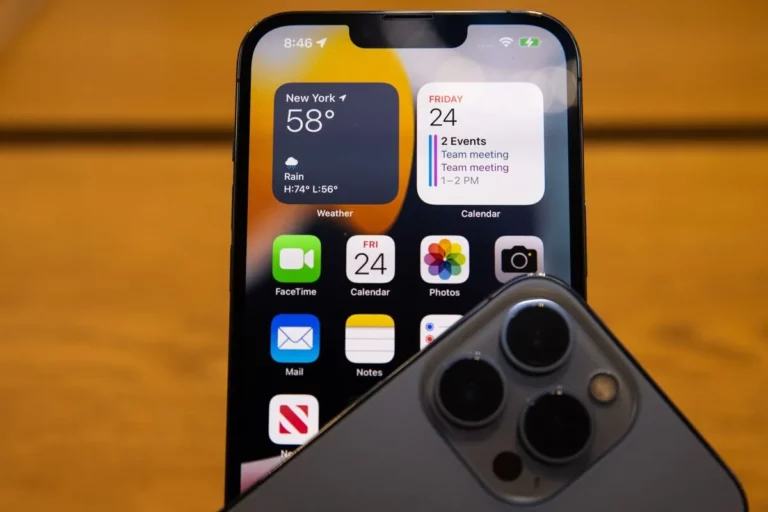Mobile Marketing is Said to Be the Future of E-Commerce

The e-commerce world is constantly evolving, and in recent years, mobile marketing has emerged as a dominant force shaping the future of online retail. As more consumers turn to mobile devices for shopping, e-commerce businesses must adapt and embrace mobile marketing strategies. In this comprehensive blog post, we’ll explore the significance of mobile marketing in the e-commerce landscape, the key trends driving its growth, and practical tips for e-commerce businesses looking to thrive in the mobile-first era.
The Mobile Revolution in E-Commerce

Mobile marketing’s rise to prominence in the e-commerce sector is not random; it’s a response to the undeniable dominance of mobile devices in our lives. Here are some key statistics that underscore the mobile revolution in e-commerce:
1. The Proliferation of Mobile Devices
As of my last knowledge update in September 2021, the number of mobile device users globally had surpassed 5 billion. Smartphones have become an integral part of our daily routines, providing easy access to the internet and a gateway to e-commerce platforms.
2. Mobile Shopping is on the Rise
The convenience of mobile shopping has fueled its growth. Statista states mobile e-commerce sales are projected to account for 72.9% of e-commerce sales by 2021. This trend is expected to continue its upward trajectory.
3. Mobile Search Dominance
Google, the world’s largest search engine, recognized the significance of mobile and introduced mobile-first indexing, which prioritizes mobile versions of websites for search rankings. This shift reflects Google’s acknowledgment that many users use mobile devices as the primary tool for information retrieval and online shopping.
4. Mobile Apps and Consumer Loyalty
Mobile apps offer a more personalized and seamless shopping experience, contributing to customer loyalty and higher conversion rates. According to eMarketer, mobile app users spend significantly more time and money on retail apps than mobile web users.
Key Trends Driving Mobile Marketing in E-Commerce
Several trends are shaping the future of e-commerce and propelling mobile marketing to the forefront. Let’s explore some of the most significant ones:
1. Mobile-First Indexing
As mentioned earlier, search engines like Google have shifted their focus to mobile-first indexing. This means that they primarily use the mobile version of the content for ranking and indexing. E-commerce businesses must ensure their websites are mobile-friendly and responsive to rank well in search results.
2. Mobile Wallets and Contactless Payments
The adoption of mobile wallets and contactless payment methods has surged, especially after the COVID-19 pandemic. Apple Pay, Google Pay, and other mobile wallet apps have gained widespread acceptance. E-commerce businesses are integrating these payment options to cater to the preferences of mobile shoppers.
3. Augmented Reality (AR) and Virtual Reality (VR)
AR and VR technologies are transforming the way consumers shop online. E-commerce brands use AR to allow customers to try on clothing virtually, visualize furniture in their homes, or even test makeup products. VR enhances the online shopping experience with immersive virtual showrooms and interactive product demonstrations.
4. Chatbots and AI-Powered Customer Service
Chatbots and artificial intelligence (AI) are becoming increasingly integral to mobile marketing in e-commerce. They provide real-time support, answer customer queries, and offer personalized product recommendations. AI algorithms analyze customer behavior and preferences to enhance the shopping experience.
5. Social Commerce
Social media platforms like Instagram, Facebook, and Pinterest have introduced features enabling users to discover and purchase products directly. Social commerce blurs the lines between social networking and e-commerce, making it easier for mobile users to shop while staying engaged with their favorite social channels.
Practical Tips for Mobile Marketing Success in E-Commerce
Now that we’ve established the importance of mobile marketing in e-commerce and the trends driving its growth, let’s delve into some practical strategies for e-commerce businesses to thrive in the mobile-first era:
1. Optimize for Mobile
Ensure your website is mobile-responsive and offers a seamless browsing and shopping experience on all mobile devices, from smartphones to tablets. Test your website’s load times, navigation, and overall functionality on various mobile platforms.
2. Invest in a Mobile App
Consider developing a mobile app for your e-commerce store. Mobile apps offer personalized experiences, push notifications, and faster loading times. They can help drive customer loyalty and increase sales.
3. Leverage Push Notifications
Push notifications are an effective way to re-engage customers and encourage repeat purchases. Send personalized notifications about promotions, abandoned shopping carts, and product recommendations to keep your brand top of mind.
4. Implement Mobile SEO Best Practices
With mobile-first indexing, optimizing your website for mobile SEO is crucial. Focus on improving page speed, mobile-friendly design, and mobile-specific keywords. Ensure that your content is easily readable on smaller screens.
5. Secure Mobile Payments
Enhance the security of mobile payments to instill trust in your customers. Use trusted mobile payment gateways and adopt security features like two-factor authentication and biometric recognition.
6. Embrace Social Commerce
Leverage social media platforms to reach and engage with your target audience. Create shoppable posts and ads on platforms like Instagram and Facebook. Partner with influencers to promote your products to a broader audience.
7. Create Immersive Experiences
Explore using augmented reality (AR) and virtual reality (VR) to provide immersive shopping experiences. Let customers virtually try on products, visualize how items look in their space, or uniquely interact with your products.
8. Personalize the Shopping Journey
Implement AI-powered personalization to recommend products based on a customer’s browsing and purchase history. Tailor the shopping experience to each user, making their journey more enjoyable and efficient.
9. Prioritize Customer Support
Invest in chatbots and AI-powered customer support to provide real-time assistance to mobile shoppers. Ensure that your customer service team is well-equipped to address mobile-specific inquiries.
10. Measure and Optimize
Use analytics tools to track the performance of your mobile marketing efforts. Monitor key metrics like conversion rates, bounce rates, and customer acquisition costs. Continuously optimize your strategies based on the data you collect.
Case Studies in Mobile Marketing Success
To illustrate the impact of mobile marketing in e-commerce, let’s take a look at a couple of notable case studies:
1. Amazon: Mobile Shopping Reinvented
Amazon, one of the world’s largest e-commerce giants, has successfully embraced mobile marketing. The Amazon mobile app provides a seamless shopping experience with features like one-click purchasing and voice-activated shopping via Amazon Alexa. They also use personalized recommendations and push notifications to keep customers engaged and informed.
2. Sephora: Augmented Reality Beauty
Sephora, a cosmetics retailer, uses augmented reality to enhance the mobile shopping experience. Their Virtual Artist feature allows customers to try on makeup virtually, helping them make informed purchasing decisions. This innovative approach has significantly boosted engagement and sales.
The Road Ahead for E-Commerce
As mobile devices permeate every aspect of our lives, e-commerce businesses must adapt and prioritize mobile marketing to stay competitive. The future of e-commerce lies in the hands of mobile consumers, and the brands that best cater to their needs and preferences will thrive in this dynamic landscape.
In the coming years, we can expect even more innovations in mobile marketing, such as the integration of artificial intelligence, augmented reality, and seamless mobile payment experiences. By staying ahead of the curve and embracing these trends, e-commerce businesses can secure their position in the ever-evolving world of online retail. It’s clear that the future of e-commerce is mobile, and those who harness the power of mobile marketing will lead the way.





